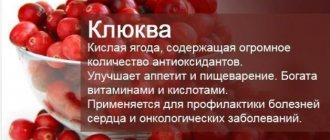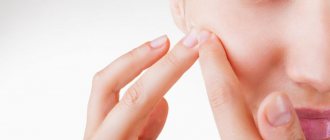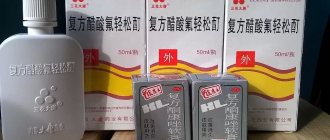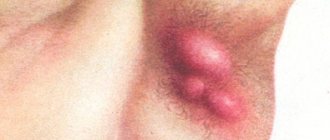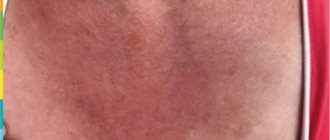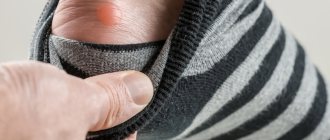Why does psoriasis occur?
The etiology of psoriasis is not completely known. But today, more and more doctors are inclined to consider it a genetic disease that is activated as a result of exposure to environmental factors. These include:
- viral and bacterial infections;
- wrong lifestyle;
- climate change, hypothermia;
- stress;
- medication use;
- skin damage: burns, cuts, frostbite, bites.
These factors can cause an abnormal reaction of the immune system, which leads to failure of skin regeneration - excessively rapid restoration of the epidermal layer, when the previous one does not have time to die and grows.
Comprehensive treatment of psoriasis involves the use of topical corticosteroids, emollients, vitamin D, and ultraviolet irradiation of the affected areas of the skin. Herbal medicine is important to alleviate the general condition of the patient.
The use of herbal preparations with anti-inflammatory and immunostimulating effects soothes, moisturizes the skin, promotes wound healing and increases the body's overall resistance to infections.
To approve any plan to combat psoriasis, you must consult a doctor, because improper treatment can only worsen your condition.
We will talk about the most effective traditional medicine for psoriasis below.
Prohibited Products
Products, the breakdown of which leads to a shift in pH to the acidic side, are strictly prohibited for psoriasis. First of all, this is red meat - fatty pork and lamb, chicken thighs, beef, as well as liver, kidneys, and brains. It is necessary to completely avoid the following products:
- sausages, smoked products, semi-finished products, fast food;
- homemade and factory-made sauces, including ketchup and mayonnaise;
- canned fruits, vegetables, mushrooms;
- tomatoes, eggplant, peppers, potatoes;
- plum, pomegranate, avocado, citrus;
- strawberries, raspberries, wild strawberries, red, white, black currants;
- butter and puff pastries;
- chocolate, caramel, butter and protein cream;
- red caviar;
- shrimp, squid, mussels, crabs, oysters.
Strict adherence to the diet is required for severe, recurrent psoriasis. With persistent remission for several years, nutritionists make concessions to patients. For example, they are allowed to eat a cake or dessert with strawberries once a week. The patient must adjust his diet based on how he feels. If a slice of dried bread with boiled sausage does not worsen your health, then from time to time you are allowed to treat yourself.
Therapy for psoriasis: recipes for remedies based on medicinal plants
Herbal medicine is a safe and effective way to treat skin diseases, involving the external use of herbal remedies and oral administration.
For local treatment of areas of the body affected by psoriasis, ointments, baths, and compresses made from celandine, sage, chamomile, marshmallow, string, and yarrow are recommended.
Thanks to the powerful antibacterial properties of these herbs, the following herbal treatments:
- relieve inflammation and redness of the skin;
- reduce itching, bleeding of wounds, relieve pain;
- promote exfoliation of coarse particles of the epidermis;
- accelerate tissue regeneration;
- restore skin elasticity.
Internal use of medicinal herbs for psoriasis involves the use of decoctions and infusions of oregano, St. John's wort, chamomile, and blueberries.
Herbal medicines are taken orally for the following purposes:
- calming the patient's nervous system;
- improving metabolism and blood circulation;
- normalization of sweating;
- vitaminization and strengthening of the immune system.
The persistent therapeutic effect of herbs in the fight against psoriasis is ensured by a special chemical composition - a high concentration of alkaloids, flavonoids, saponins, organic acids and tannins.
The dermatologist chooses treatment methods and necessary herbal medicines individually, depending on the extent of psoriasis, the severity of the disease, the patient’s age and the presence of chronic diseases. This allows you to achieve maximum results and avoid side reactions.
Oil with celandine
For mild cases of the disease, when the area affected by psoriasis occupies less than 3% of the body, natural oils, ointments and creams with celandine are prescribed.
This medicinal plant exhibits active bactericidal and antifungal effects, relieves itching and soothes pain, helps soften and moisturize the skin.
For external use, you can use infusions and decoctions of celandine, but oils and ointments have the best effect on the skin. You can prepare any product based on celandine yourself.
Being a mild product, celandine-based oil will help cope with peeling.
To do this, you need to prepare an oil extract: pour dry herb in a jar with oil (sea buckthorn, sunflower) pasteurized in a water bath so that the oil level is a few centimeters above the herb. Leave for a week, shaking occasionally. Dilute in a 1:1 ratio with pure oil. You need to apply the oil to a clean body three times a day. Under the supervision of a doctor, therapy should be continued until the peeling is completely eliminated.
Read more about the use of celandine for psoriasis in our material.
Bath of sage, chamomile, string
Dermatologists note the healing properties of herbal baths at all stages of psoriasis.
A bath with the addition of a decoction of sage, chamomile and string disinfects, cleanses the body affected by psoriasis from hardened scales, normalizes sweating and relieves nervous tension.
Sage leaves promote wound healing and strengthen the epithelium. The plant antibiotic salvin in the plant causes a powerful anti-inflammatory and antibacterial effect.
Chamomile flowers stop bleeding, increase sweating, soothe, tone the skin, relieve pain and itching.
The herb is valued for its antiallergic, diaphoretic and bactericidal effects. The plant relieves inflammation and normalizes skin pH.
To prepare a herbal bath for psoriasis in an enamel container, combine 3 tbsp.
l. sage herbs, 3 tbsp. l. chamomile flowers, 4 tbsp. l. strings and 1 tbsp. l. celandine. Pour 2 liters of boiling water and boil for 10 minutes. Infuse the broth for three hours, strain and add to a bathtub half filled with warm water. You need to take a herbal bath for about 20 minutes once a day before bed. The water temperature should not exceed 40 °C. The course of treatment is 5–10 procedures. After taking a bath, lightly pat your body dry with a towel without rubbing.
Herbal compress
Compresses based on herbal infusions actively suppress acute inflammatory processes of the skin. Their advantage over other psoriasis medications is that they can affect the affected area of the body for a long time.
A collection that, in particular, includes:
- calendula flowers (have an antiviral, bactericidal effect, accelerate wound healing);
- marshmallow roots (reduce inflammation, moisturize the skin, accelerate spontaneous tissue regeneration);
- yarrow herb (anti-allergic, hemostatic agent, softens the skin and cleanses papules of scales).
To prepare a compress for psoriasis, place 1 tbsp in a saucepan.
l. calendula flowers, horsetail herb, marshmallow roots, yarrow herb and black currant leaves. Pour 1 liter of boiling water over the herb mixture and bring to a boil. Let it brew for an hour. Moisten gauze with the resulting infusion and apply to psoriasis rashes for 30–40 minutes.
Hair rinse for scalp psoriasis
Psoriasis of the scalp manifests itself as red spots, flaking of the skin, itching and inflammation.
After each hair wash, patients with scalp psoriasis are recommended to use a rinse based on a herbal decoction, namely:
- succession herbs (disinfects, heals cracks and purulent wounds, regulates the functioning of the sebaceous glands, prevents hair loss);
- elecampane rhizomes (eliminate itching and flaking of the skin, nourish hair follicles);
- oregano herbs (has anti-inflammatory, analgesic, antimicrobial properties, promotes gentle exfoliation of plaques).
Thanks to the complex action of medicinal plants, the phytorinse softens psoriasis plaques, helps relieve irritation and eliminates itching for a long time.
To prepare a rinse for psoriasis, place 2 tbsp in a small enamel pan. l. herbs and 1 tbsp. l. chamomile flowers, elecampane rhizomes and oregano herb. Pour 3 liters of boiling water and keep on low heat for 5-10 minutes. Remove from heat. When the liquid has cooled to 40 °C, the rinse aid is ready for use.
General strengthening decoction from a collection of herbs
To relieve psycho-emotional stress, strengthen the immune system and improve metabolism in psoriasis, it is useful to take herbal infusions and decoctions. They often include:
- valerian rhizomes (have a calming effect on the central nervous system, enhance the secretion of the glands of the gastrointestinal tract);
- mint leaves (improves capillary blood circulation, activates metabolism, stimulates the functions of the epidermis, has antiseptic and antifungal properties);
- St. John's wort herb (relieves emotional stress, has anti-inflammatory and antimicrobial effects, promotes tissue regeneration);
- blueberry shoots (vitamin, restorative and tonic).
The most popular plants for treating psoriasis by oral administration also include soapwort, string, licorice, hops, and sage.
To prepare a vitamin infusion for psoriasis, mix equal portions of elderberry flowers, St. John's wort, string, blueberry shoots, calamus rhizomes and mint leaves. 1 tbsp. l. Place the collection in an enamel bowl and pour 300 ml of boiling water. Cover until completely cool. Drink half a glass of liquid after breakfast and before bed.
How to use correctly
There are several tips for using herbs:
- Be sure to read the information about all ingredients, paying attention to contraindications.
- There may be allergic reactions, but you can easily check how the dermis reacts to the healing mixture. Simply apply a few drops of the prepared solution to the skin of your elbow or wrist for 7-10 minutes. If no changes occur, feel free to apply the resulting suspension externally.
- Preparing decoctions takes time. The herbs can either be poured with boiling water or simmered over a fire for several minutes.
- The healing potion must be infused: the more, the better.
- Be sure to filter the broth using a sieve or gauze.
- You can use the product internally before or after meals - see how indicated in the recipe.
- If you use oils for external use, combining them with herbs, be sure to heat the extract to a temperature of 45 degrees.
- Are you making a mask or lotion? Leave the product on the dermis for up to 15 minutes. You can wrap a towel on top for better activation of the components.
General recommendations for combating psoriasis
Treatment of psoriasis is long-term and requires significant efforts from the patient: from carefully following the doctor’s recommendations to lifestyle changes.
The following will help to enhance the complex effect of herbal and synthetic products prescribed by a specialist and prolong the period of remission:
- proper nutrition (avoiding spicy and too salty foods);
- giving up bad habits: smoking and drinking alcohol;
- body weight control;
- regular exercise;
- avoiding stress;
- using a soft shower sponge and soft fabric clothing.
A healthy lifestyle helps reduce the symptoms of psoriasis by up to 75%. And although psoriasis has not yet been completely cured, it can be successfully controlled throughout life if you monitor the progress of the disease and follow the recommendations of specialists.
Take care of the health and youth of your skin, because a beautiful body is a catalyst for a good mood and a guarantee of inner harmony.
Effect of use
Herbal medicine cannot boast of lightning-fast results. At least a month must pass for the beneficial substances obtained from herbs to accumulate in the body and begin to act. When used externally, the result will be noticeable within two weeks. If the healing composition does not improve the condition of the skin on the head after this period, then you should use another drug, since the one you have chosen is not suitable for the skin.
It happens that at first there is a positive trend, and then at some point the removal of keratinized scales stops. Dermatologists say that the skin is simply accustomed to ointments or compresses. Therefore, you will need to stop using them for two weeks and then resume the treatments.
If irritation occurs, which manifests itself in increased itching, increased deposits, the formation of a waxy crust, or redness of the skin, we recommend that you stop using herbs.
Herbal medicine may well relieve you of psoriasis. It is used as an additional remedy that goes along with medications prescribed by a trichologist or dermatologist.
Herbal decoctions, healing ointments, various tinctures based on roots, inflorescences, leaves, blades of grass and fruits can eliminate the symptoms of exacerbation of the disease, because they have a restorative, sedative, antibacterial and anti-inflammatory effect.
Prevention
Basic rules for dealing with exacerbations of eczema diseases:
- Avoid allergens;
- Moisturize your skin;
- Avoid heat and dry air, drink more water;
- Don't be stressed.
Traditional medicine also offers advice on prevention. If you follow these recipes in parallel with the general recommendations, you can forget about eczema for a long time.
- Apply coconut oil after shower to help retain moisture;
- Fish oil is a healing liquid, saturated with omega 3 fatty acids and fat-soluble vitamins, and is an excellent prevention of skin problems.
- Infusion of flax seeds and flaxseed porridge, when consumed daily, prevent exacerbations.
Symptoms of eczema
- Dry skin;
- Redness and inflammation;
- Itching;
- Areas of rough, thickened skin;
- Peeling;
- Weeping and crusting.
Expert opinion
— Eczema most often has a chronic course and, unfortunately, there is no way to cure it forever, but it is possible to achieve long-term remission. The main helpers that reduce dryness, flaking, and redness of the skin are moisturizing products for external use. Their importance especially increases in the autumn-winter period.
Firsakova Svetlana Sergeevna, dermatovenerologist, Melanoma Unit Moscow clinic
Bibliography
- Glukhenky B.T. Immune-dependent dermatoses: eczema, atopic dermatitis, true pemphigus, pemphigoids / B.T. Glukhenky, S.A. Grando. - Kyiv: Health, 1990.-435 p.
- Kubanova A.A. State of the immune system in patients with eczema / A.A. Kubanova, L.L. Vasilyeva, L.V. Alekseeva, N.G. Dmitrieva. // Vestn. dermatol. Venerol. 1983. - No. 8. — P. 16-19.
- Potekaev Yu.O., N.S. Eczema: aspects of history and modern ideas / N.S. 3. Potekaev // Clinical. dermatology and venereology. 2009. -№1. -WITH. 102-107.
- Potekaev, N.S. Eczema: remarks on modern ideas / N.S. Potekaev // Clinical. dermatology and venereology. 2009. - No. 1. -WITH. 67-73.
- Order of the Ministry of Health and Social Development of the Russian Federation dated February 11, 2005 No. 128 “On approval of the standard of medical care for patients with dyshidrotic eczema.” - M., 2005.
- Prilutsky, V.I. Electrochemically activated water: anomalous properties, mechanism of biological action / V.I. Prilutsky, V.M. Bahir. M.: VNIIMT, 1995. - 228 p.
- The use of rozamet cream with an applicator in the complex therapy of eczema / I.V. Khamaganova, J.I.B. Veselova, N.P. Tarabrina et al. // Clinical. dermatology and venereology. 2009. - No. 5. — P. 46-48.
- Elias, PM Lipid and the epidermal water barrier: metabolism, regulation and pathophysiology / PM Elias // Semin. Dermatol. 1992. -Nil. — P. 176-182.


